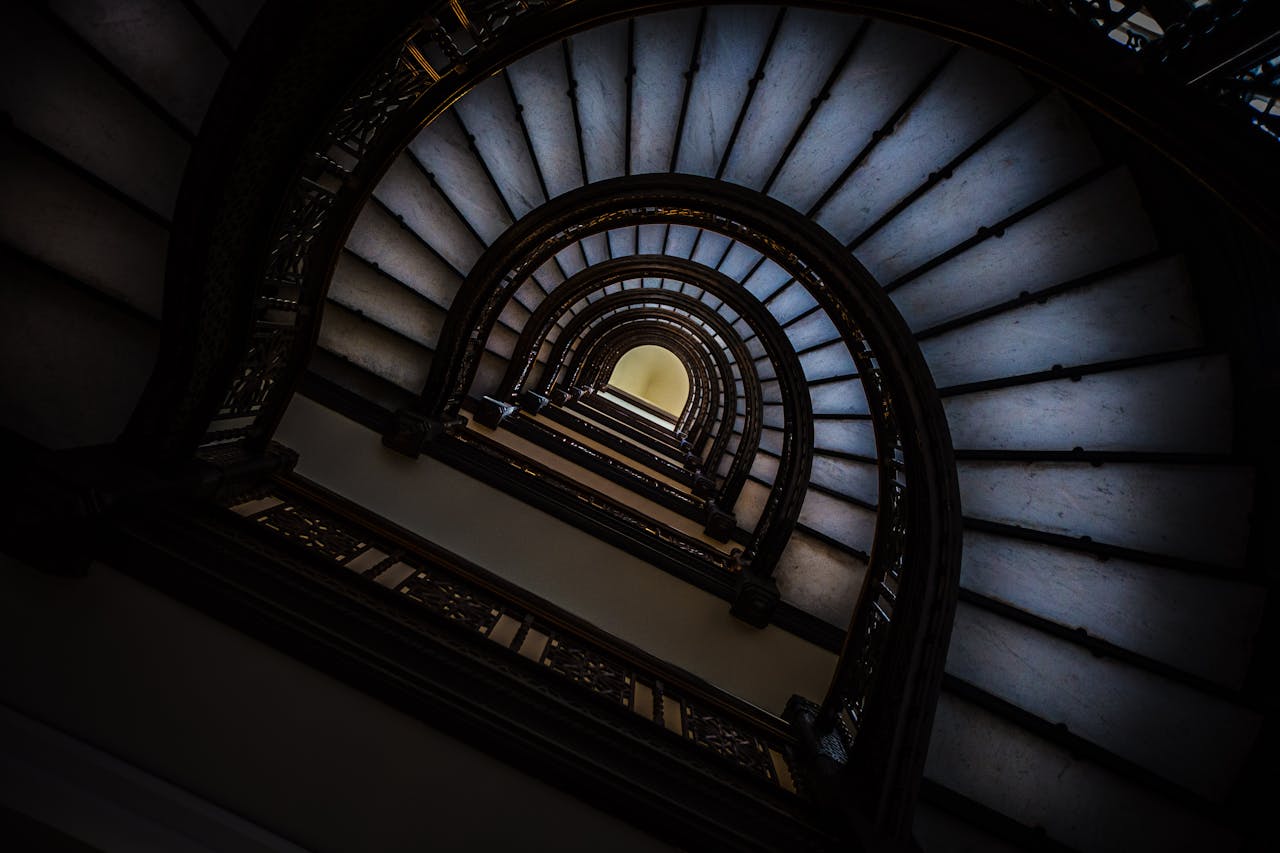Illusion vs reality are two sides of a coin that often have us questioning what’s truly in front of our eyes. While a dictionary might define illusion as a misleading image presented to the vision, reality is said to be the state of things as they actually exist. But that’s just scratching the surface here.
Throughout history, different cultures have wrestled with these concepts in fascinating ways. From Plato’s Allegory of the Cave, where shadows cast on a wall represent illusions, to Eastern philosophical teachings like Maya in Hinduism, which suggests the illusionary nature of the sensory world, this has been a universal fascination.
So why do we keep falling for illusions? Psychological reasons might hold the answers. Our brains are wired to fill gaps and make patterns, leading us to perceiving illusions, often convincing us of something that isn’t there.
Sometimes, it’s past experiences and biases twisting what we see, making something appear different from reality. Understanding these tricks can help us see the truth, teaching us to question more and perceive a little less at face value.
Illusion vs Reality — The Psychology Behind Illusions
“We live in a fantasy world, a world of illusion. The great task in life is to find reality.”
Ever notice how we sometimes see what isn’t there or remember things that didn’t quite happen that way? It’s all about those cognitive biases and perceptions fooling our senses. Our brains love shortcuts, and sometimes this leads to filling in the blanks in ways that aren’t exactly accurate. Think of it as auto-correct for life, but not always the most reliable version.
These glitches in perception can influence our everyday decisions. Say, you’re convinced you’ve seen a sale sign, and suddenly you find yourself walking out with three new outfits. Your brain’s perception of reality might’ve nudged you into that decision, even if the deal wasn’t as sweet as it seemed.
Memory, too, can play tricks on us. Ever had a friend remember a shared event entirely differently than you do? It’s not that they’re wrong or you’re right; it’s just how human memory works, colored by personal experiences and biases. This is why understanding these psychological quirks can be super helpful.
To see through these everyday illusions and get a better understanding on how to differentiate illusion vs reality, start listening to your inner skeptic a bit more. Take a moment to question what seems obvious. Good thing is, the more you practice this, the sharper your perception becomes, and who knows—it might save you from another splurge sale!
Media and Its Mastery of Illusion
“When you look in the mirror, what do you see? Do you see the real you, or what you have been conditioned to believe is you? The two are so, so different. One is an infinite consciousness capable of being and creating whatever it chooses, the other is an illusion imprisoned by its own perceived and programmed limitations.” — David Icke —
It’s a challenge distinguishing illusion vs reality in the media. Ever wonder why scrolling through social media sometimes feels like peeking into a parallel universe where everyone’s life is beyond perfect?
It’s an illusion crafted with care, from filters that smooth over reality to curated narratives that highlight only the glossy parts. It’s like a movie where everyone gets to play the star, showing only the takes that turned out just right.
Advertisements have taken the art of illusion to a whole new level, turning everyday products into must-have wonders. The sparkle and allure often make us believe we need something more than we do, tugging at our desires in the most convincing ways. Awareness of these tactics can stop us from getting carried away in the hype.
On the broader stage, political propaganda paints realities that fit agendas more than truth. Presenting selective narratives, these crafted realities can sway public opinion, making it crucial to seek out multiple sources and perspectives.
Breaking down these media-driven illusions starts with an honest assessment of what’s being shown versus what’s omitted. Look at sources with a critical eye and consider who’s crafting the narrative. This helps in peeling back the layers to find something closer to the truth.
Remember, the media thrives when audience engagement is high, often prioritizing sensationalism over substance. Staying grounded in reality requires curiosity and a bit of skepticism, but trust me, it’s worth it for a clearer view of the world.
Illusion vs Reality — Illusions in Personal Relationships
“Our minds influence the key activity of the brain, which then influences everything; perception, cognition, thoughts and feelings, personal relationships; they’re all a projection of you.”
Personal relationships, whether romantic or platonic, can be a goldmine of illusions. Often, it’s easy to misunderstand love as a fairytale with perfect endings, thanks partly to media portrayals of romance. Illusion vs reality is then difficult to tell apart.
Real love, however, often involves more complexities than what’s shown. Recognizing the difference between idealization and reality in relationships can avert disappointment.
The idea of happiness in relationships frequently comes wrapped in illusions, too. Happiness isn’t a constant state but a byproduct of consistent efforts and mutual understanding. ‘Happily ever after’ might sound sweet, but it’s a series of moments rather than a static destination.
Idealizing partners can often lead to myths about who they are, particularly in the initial stages of a relationship. Getting to know someone’s real self, free from preconceived notions, lays a solid foundation. After all, nobody wants to be seen through a lens of assumptions.
Friendships aren’t exempt from these illusions either. Sometimes, what we perceive as deep connections fades away when tested under real circumstances. Being honest with yourself about what makes a relationship meaningful can help in nurturing genuine connections.
Clearing these illusion-induced cobwebs is all about clear communication and maintaining realistic expectations. It’s about relating as two real people, flaws and all, rather than characters in a flawlessly scripted narrative. Scrutinizing your perceptions critically and engaging in open dialogues can strengthen bonds and create healthier relationships.
Illusions in the Workplace
“The business of business is relationships; the business of life is human connection.”
Ever notice how the idea of a dream job often feels like chasing a rainbow? The perfect job, with seamless responsibilities and zero stress, is often an alluring illusion. Reality tends to pull no punches—work usually comes with its share of challenges, even when you love what you do.
The balance between ‘work’ and ‘life’ is another illusion that seems to capture imaginations. Many find themselves juggling responsibilities, aspiring for that mythical equilibrium. It’s often about making choices and compromises, rather than achieving a magical balance where everything fits perfectly.
Corporate narratives further contribute to workplace illusions. They often promote a certain culture or ethos that might not fully align with employee experiences. The façade of endless perks and happiness can be a strategic shell, obscuring underlying issues. Understanding your company’s priorities and evaluating the workplace culture critically is essential.
Distinguishing between illusion and reality at work involves healthy skepticism and a clear appraisal of personal goals. It’s vital to define what fulfillment means for you professionally. Look beyond the surface-level allure and question whether the reality aligns with your vision of success.
By focusing on personal growth, skill development, and realistic career paths, it’s possible to overcome these workplace illusions. Bringing authenticity into your professional life can color your work experience with more genuine satisfaction, leading to meaningful achievements.
Breaking Free: Strategies to Distinguish Between Illusion and Reality
“Life is a series of natural and spontaneous changes. Don’t resist them – that only creates sorrow. Let reality be reality. Let things flow naturally forward in whatever way they like.”
Seeing past the smoke and mirrors of illusion vs reality takes a bit of skill and practice. A good starting point is building self-awareness. Tools like journaling or reflective questions can help spot patterns where illusions commonly arise.
Critical thinking is your best friend when navigating the fog of illusion. It’s about fostering a skeptical mindset, not in a negative sense but as a way to evaluate information objectively. Ask questions, seek evidence, and don’t be afraid to challenge what’s accepted.
Mindfulness plays a huge role in anchoring ourselves in reality. Staying present helps cut through mental noise and see things as they are, sans embellishment or distortion. Techniques such as deep breathing and meditation can keep you connected to the here and now.
Reality-checking conversations with trusted friends or mentors can also provide a fresh perspective. They might notice biases or illusions you’re blind to, offering insights that might change your perspective.
The journey isn’t about disconnecting from all illusion, since they sometimes bring creativity and hope, but rather about knowing when to question and when to enjoy. Balancing reality with a touch of optimism can lead to a richer, more authentic life experience.
It’s all about being awake within the dream we created.
Illusion Vs Reality — Moving Forward: Embracing Reality for a Balanced Life
“Life is not a problem to be solved, but a reality to be experienced.” — Soren Kierkegaard —
purposefully
Understanding reality doesn’t mean giving up on dreams or creativity—it’s about moving purposefully. When you embrace reality, life starts feeling more grounded and fulfilling. Clarity helps you make decisions that reflect your true values and goals.
Reevaluating personal beliefs can often unveil where illusions might have skewed perception. Ask yourself if old habits or thoughts align with who you are today. This self-reflection can untangle past influences, making room for genuine aspirations that fit your current self.
Having a realistic outlook doesn’t mean ditching optimism; rather, it means backing up dreams with actionable steps. This not only fuels motivation but also mitigates the frustration arising from unmet expectations.
Incorporating kindness and resilience into how you tackle life’s curveballs is key. Sometimes embracing reality means accepting imperfections and finding peace with them. After all, growth often arises from the challenges and learning along the way.
Creating a balance requires gradual shifts in perspective, underpinned by curiosity and a willingness to learn. It’s where you find your grounded self, capable not only of identifying illusions but embracing them strategically when they serve a purpose.
Illusion vs reality, it’s really our choice.
In Peace & Love,
Joseph William





This post really stirred something in me—thank you for exploring such a deep and relevant topic! I appreciate how you emphasized self-awareness, critical thinking, and mindfulness as key tools for navigating the fog between illusion and reality. It’s so true that illusions aren’t always harmful; sometimes they give us hope or spark creativity. But knowing when we’re being guided by illusion rather than grounded truth is where the real challenge lies.
I wonder though—how do we maintain that healthy balance between being “awake in the dream” and not becoming too skeptical or overly analytical of everything around us? Can too much reality-checking rob us of joy or creativity in certain seasons of life?
Thank you for opening up such a deep and necessary conversation. I’m curious to hear how others navigate this journey of self-awareness and discernment.
Thanks, Alice, your thoughts are much appreciated. The “present moment” is the key, as that is the only place we can find reality. The illusion lies in past and future thinking, while in this instant of holiness and joy, we discover Who we truly Are. All the best, Joseph
Hi Joseph,
I talk a lot about all people having the potential to be their best selves, highly effective leaders and an inspiration to the people in their lives. But to be able to change our potential into a reality then we have that vision for ourselves, and put the work in to make that vision a reality.
If we don’t have that vision and don’t put the work in then our potential will be much like the illusion you describe in your amazing post.
It is great to have a dream, especially when you’re young which would seem like an illusion. But, it is very possible to turn those dreams/illusions into a reality if we have that vision, know where we’re headed and put the work in.
Thank you for sharing and keep up the amazing work.
All the best,
Tom
Thanks, Tom. Your insights are much appreciated. Best, Joseph